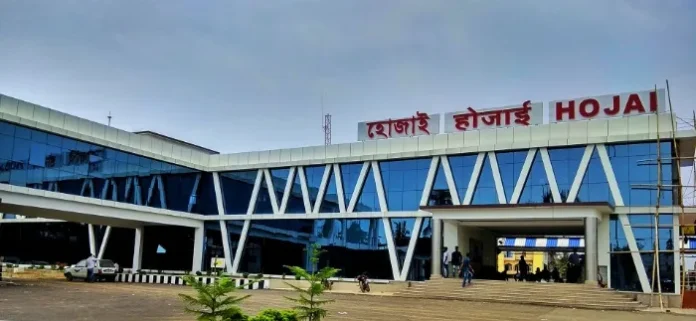On November 26, 2024, the Assam State Cabinet took a significant step by approving the renaming of the Hojai district headquarters. The district headquarters will now be called “Srimanta Shankardeva Nagar,” a move that pays homage to one of Assam’s most revered figures, Srimanta Sankardeva. This decision aims to honor the legacy of the 15th-century saint-scholar and cultural icon, whose contributions to Assam’s history, culture, and religious traditions are widely celebrated.
The renaming of Hojai district headquarters is not just a gesture of respect towards Srimanta Sankardeva, but also a way to highlight his influence on the region’s culture and spirituality. Srimanta Sankardeva is credited with the spread of the Ekasarana Dharma, a devotional movement centered on devotion to the one God. His work in the fields of literature, music, dance, and drama has been integral to the cultural fabric of Assam. Sankardeva’s influence is still felt today through the vibrant traditions of the Vaishnavism movement, Sattriya dance, and the numerous works he wrote, which continue to inspire generations.
By renaming the district headquarters, the Assam government seeks to bring greater attention to the region’s historical importance and strengthen its connection to the legacy of Srimanta Sankardeva. The decision also aims to foster a sense of pride among the local population and inspire younger generations to take greater interest in their cultural heritage. This move comes as part of a broader effort to preserve and promote Assam’s rich cultural identity in the face of modernization and globalization.
The renaming decision was welcomed by many in Assam, particularly those who view Srimanta Sankardeva as a figure of immense cultural and spiritual significance. For the people of Hojai, the new name symbolizes a deep connection to the legacy of the saint, whose teachings and philosophies continue to shape their lives. It is also seen as an important step in preserving the region’s historical narrative, ensuring that future generations remain aware of the contributions of such iconic figures to their society.
Srimanta Sankardeva’s teachings, which emphasize devotion, community living, and artistic expression, continue to influence Assam’s social and cultural practices. The Sattras, or monasteries, which Sankardeva established as centers of religious and cultural learning, continue to thrive, playing a central role in preserving the traditions of Assam. His influence on Assamese art, including the Sattriya dance form, which was recognized as a classical dance form by the Indian government in 2000, is also undeniable.
In addition to the renaming of the district headquarters, there are ongoing efforts to further highlight the legacy of Srimanta Sankardeva. Various initiatives are being undertaken to preserve his writings, promote his teachings, and ensure that the cultural practices associated with him are passed down to future generations. The renaming of Hojai district headquarters is just one of many such initiatives that reflect the state’s commitment to honoring the rich cultural heritage of Assam.
The decision to rename the district headquarters is also seen as a response to growing calls for more recognition of Assam’s unique cultural identity at the national level. By naming prominent places after figures like Srimanta Sankardeva, the state government hopes to create a greater awareness of the cultural diversity that exists within India. It is also a reflection of the growing importance of cultural pride in shaping regional identity in modern India.
As the process of renaming moves forward, there will likely be continued discussions around the significance of preserving regional history and culture in contemporary times. For now, the renaming of Hojai district headquarters to “Srimanta Shankardeva Nagar” marks a momentous occasion for the people of Assam, one that reaffirms the enduring relevance of Srimanta Sankardeva’s contributions to the cultural, spiritual, and social landscape of the region. It also sets a powerful example of how honoring the past can guide the future of a community, creating a stronger, more connected society.


